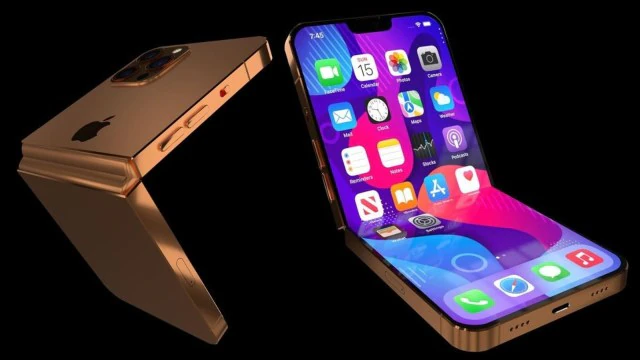Recent insights hint at Apple’s ambitious strides in the realm of foldable technology, with reports indicating the development of not just one, but two prototypes for foldable iPhones, alongside a foldable iPad. However, eager consumers might need to exercise patience as these cutting-edge devices might not hit the market until 2026 or even 2027.
Amidst stagnating iPhone sales and a lack of evident growth, Apple appears to be exploring foldable phones as a potential avenue to reignite consumer enthusiasm for its mobile offerings. The company’s proactive approach is evident in reports suggesting the development of two foldable iPhone models alongside a folding iPad. Nevertheless, eager consumers may need to temper their anticipation as these innovative devices may not hit retail shelves in the near future.
While specifics regarding the integration of foldable iPhones into Apple’s existing lineup remain elusive, Cupertino is diligently pursuing the development of two flip-style foldable iPhone models. Insights from The Information indicate that Apple is striving to craft a foldable iPhone featuring an external screen. However, engineers grappling with the project confront a significant hurdle: ensuring durability, as the design’s susceptibility to breakage poses a concern.
The company’s ambition is to produce a foldable phone mirroring the svelte dimensions of current iPhone models. Nevertheless, hurdles arise as crucial components such as the battery and display contribute to the device’s overall thickness, complicating the pursuit of this objective.
Additionally, Apple has reportedly engaged with “at least one” part manufacturer in Asia to source components for foldable iPhones of varying sizes. This suggests that the tech giant is exploring the development of multiple foldable devices concurrently.
Beyond the foldable iPhone, Apple’s innovation extends to the development of a folding iPad, potentially featuring a display size akin to the iPad mini’s 8-inch screen. Efforts are underway to address a common concern with foldable devices: the visible crease along the center of the screen. Apple engineers are reportedly focusing on refining the hinge mechanism to enable the device to lay flat when unfolded, mitigating this issue. While it remains unclear whether Apple will discontinue the iPad mini in favor of this folding iteration, speculation arises due to the relatively modest revenue generated by the iPad mini compared to other models.
Despite competitors like Samsung already offering foldable smartphones, Apple has yet to introduce its own foldable iPhone. These innovative devices allow users to bend the phone to close it, unveiling a larger screen upon opening, a departure from the conventional phone form factor. However, foldable phones remain a niche product category despite their unique capabilities.
Analysts foresee Apple venturing into the foldable device market, albeit not necessarily with an iPhone. CCS Insight predicted two years ago that Apple would release an iPad featuring a folding screen by 2024. This speculation underscores Apple’s potential interest in exploring foldable technology within its product lineup beyond traditional smartphones.
In the past year, Apple secured a patent detailing technology enabling users to interact with various parts of a device beyond just the screen, potentially signaling the company’s exploration of innovative user interface designs. While reports suggest Apple had been actively pursuing the development of a foldable iPhone, progress on the project was reportedly halted in 2020. However, recent indications suggest that Apple has resumed its efforts in the realm of foldable devices.
The decision to pause work on the foldable iPhone may indicate Apple’s discerning approach, as the company likely seeks to ensure that any such device offers novel features not achievable with the current iPhone form factor. This strategic mindset aligns with Apple’s reputation for introducing groundbreaking technologies that redefine user experiences. As such, the potential launch of a foldable iPhone hinges on Apple’s conviction that it can deliver significant advancements to the market.
